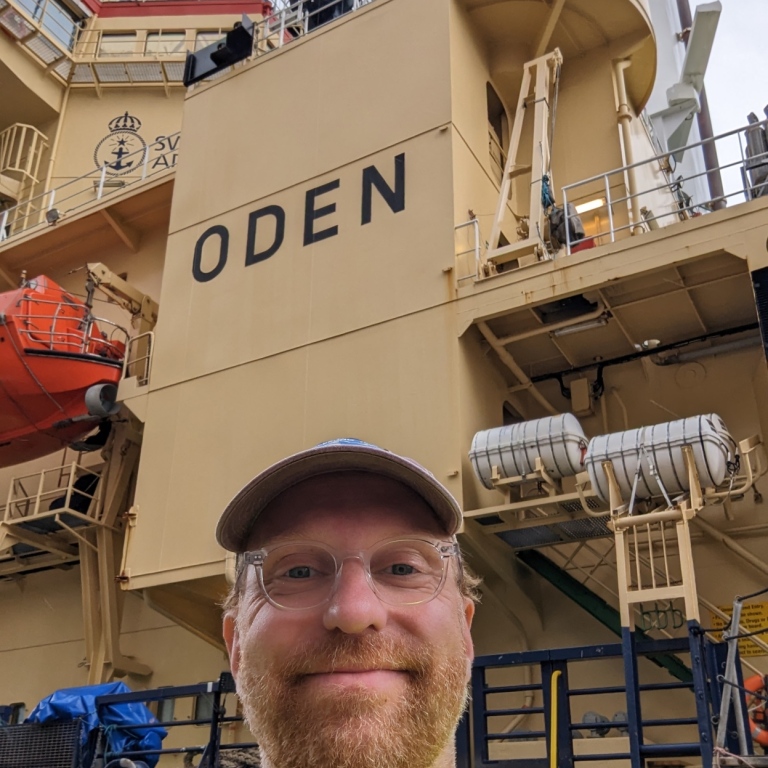Back from the Arctic – with a gold mine of data on ice melting
The final chapter of the ARTofMELT expedition is the demobilization, as the researchers make their way back to the icebreaker Oden to gather their instruments and transport them to their respective home institutions. It has been three weeks since they set foot on land after spending nearly six weeks exploring the Arctic Ocean. We had the opportunity to speak with Chief Scientist Prof Michael Tjernström and Co-Chief Scientist Paul Zieger to hear about their experiences during the cruise and their plans for the near future.

Michael Tjernström
What do you consider to be the most important thing achieved so far during the expedition?
Most of the work remains with the analysis of all the measurements and samples. This work will be ongoing for years, laying the puzzle to better understand. But what we accomplished was the work that makes all this possible; we persevered and followed the end of the winter, spring and the onset of the melt, documenting what happened, sampling and measuring, in the ocean, the sea ice and in atmosphere as this progressed. The 'data set' may be a boring name for an accomplishment, but it will turn into a gold mine!
What is your strongest memory from the time in the Arctic?
Oh, there are so many, so it is hard to pick one. Maybe standing on 7th deck in the rain looking out over the ice and realizing what was forming for my eyes where actually melt ponds, already a day after the onset of the melt.
What are your plans for the rest of the summer?
There is still some work to do first, demobilization on Oden in Helsingborg, a conference i Germany and lecturing on a summer school in Boulder Colorado. But after that I'll spend a week driving around the Colorado Rocky Mountains with my daughter taking landscape photographs. Back in European, I'll spend a couple of weeks in my summer house just relaxing.
Paul Zieger
What do you consider to be the most important thing achieved so far during the expedition?

We successfully managed to capture the atmospheric transition towards the melt period in early June. Within a multi-disciplinary team of excellent scientists from around the globe, we collected a huge amount of extremely unique and valuable data of key atmospheric, sea ice and oceanographic parameters which we will eagerly exploit in the upcoming years.
What is your strongest memory from the time in the Arctic?
The endless areas of sea ice, which were early on not affected by any melt or any visible biological activity. The ice was therefore extremely white and pristine. The ice conditions at this time of the year were also extremely difficult for the icebreaker Oden to handle, we thus had many technical difficulties in mooring the ship to the ice floes and to manoeuvre further north.
What are your plans for the rest of the summer?
First I need to catch up with work that has been paused in the last 2-3 months, but then I will take a longer break and spend much time in nature, and with family and friends.
Last updated: July 6, 2023
Source: Communications Office

